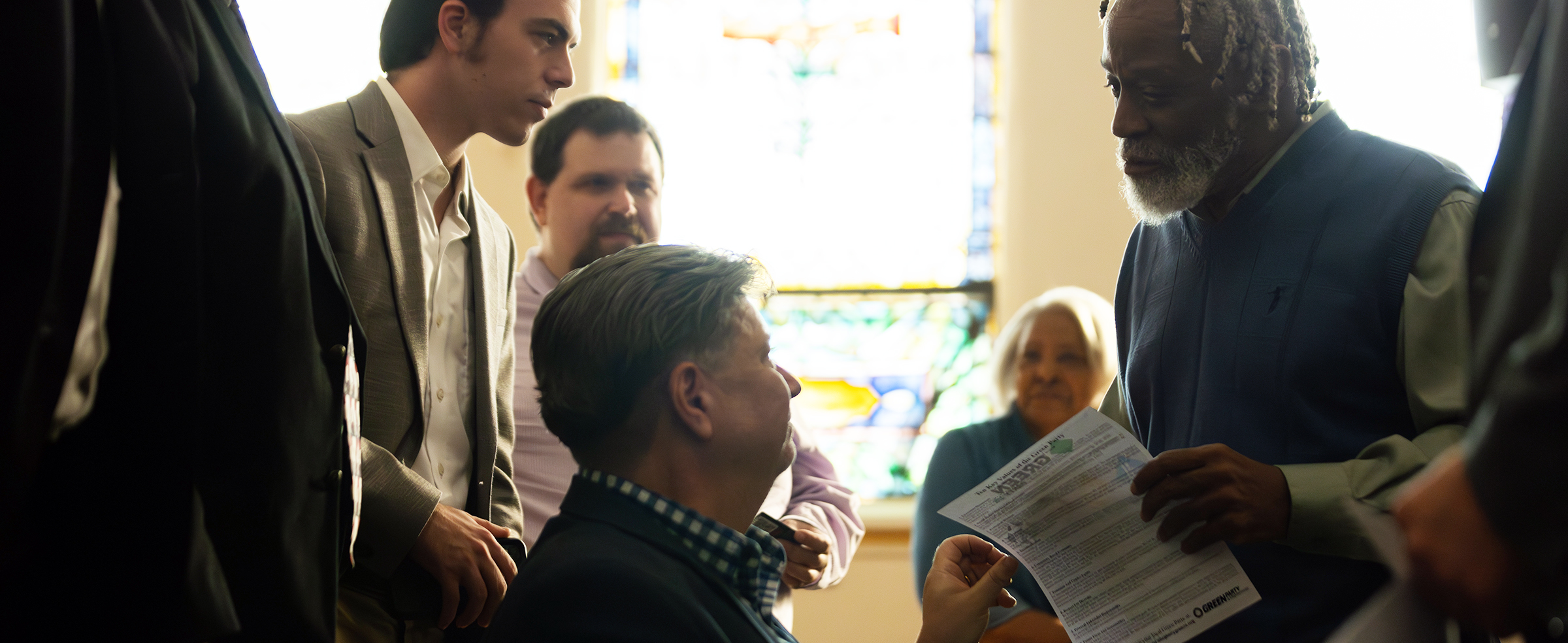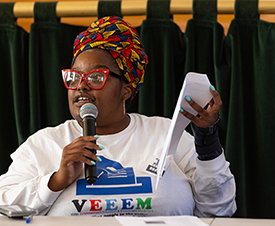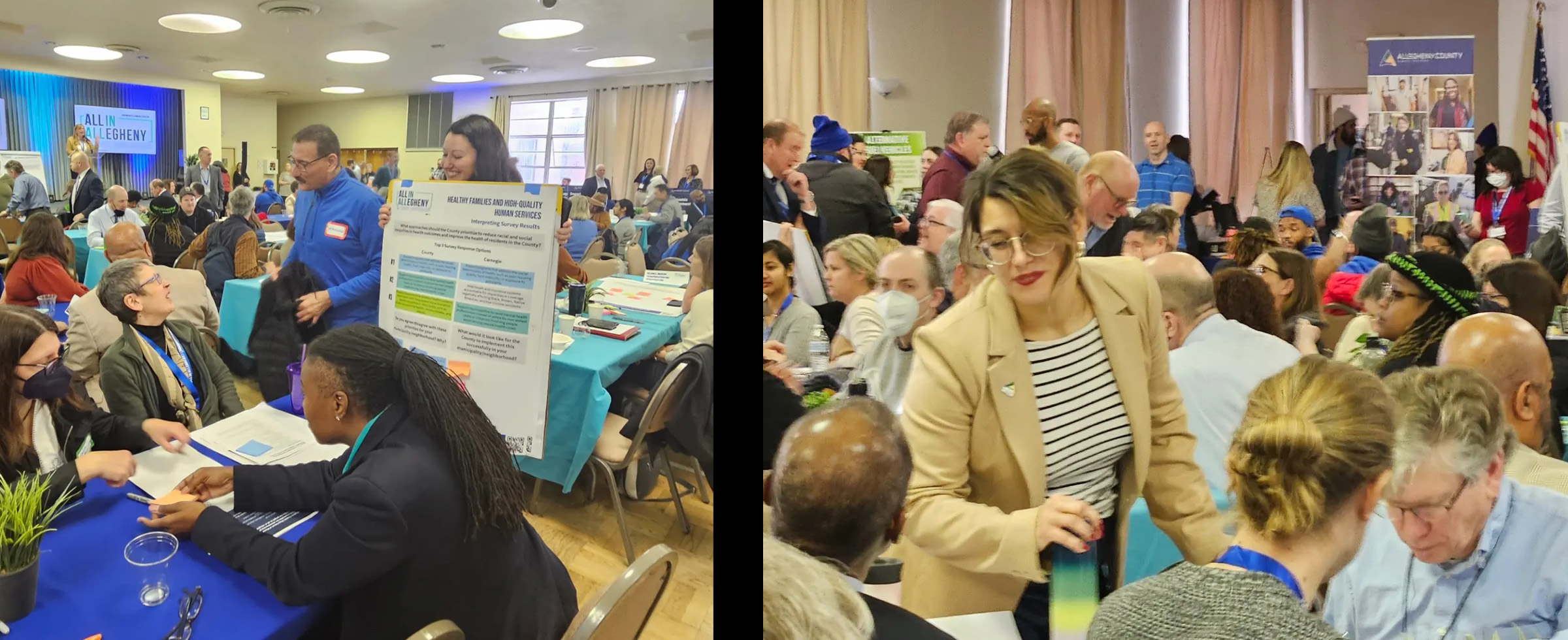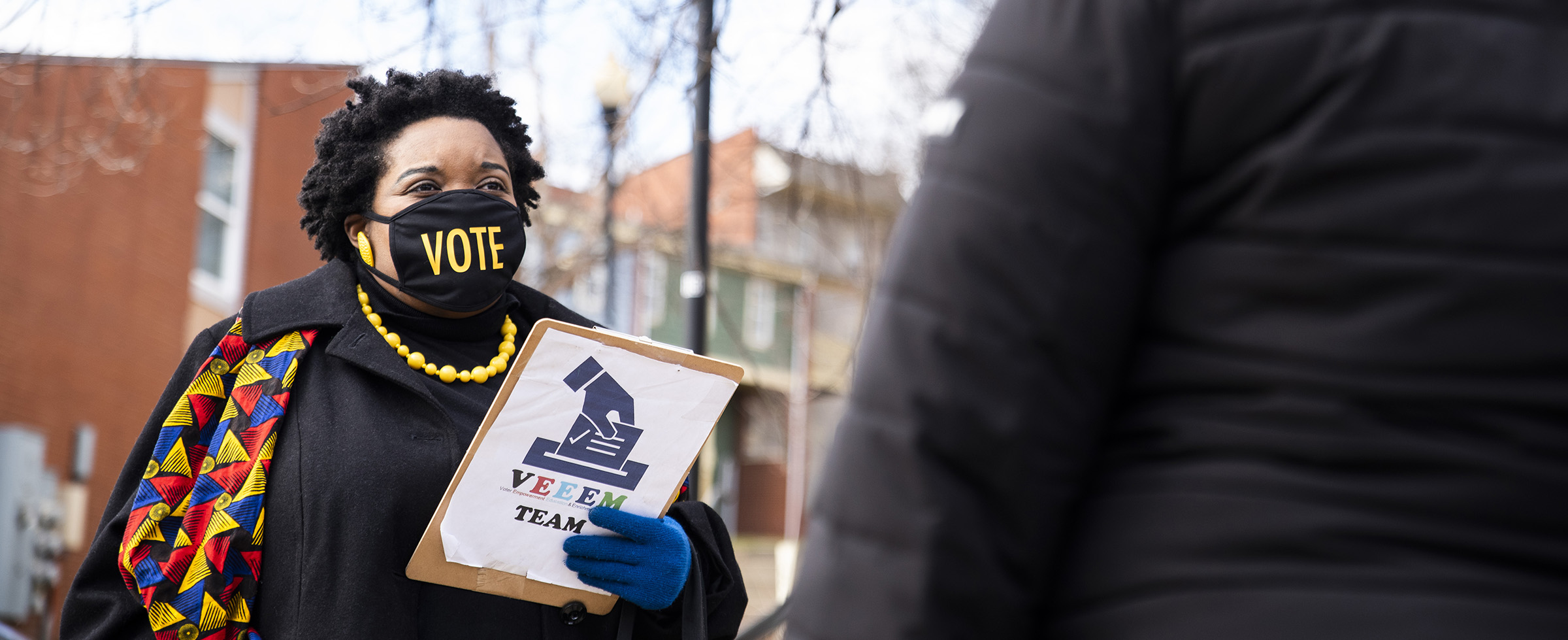Promoting Democracy

This election cycle, organizations across the Pittsburgh region continue to deploy strategies to increase voter participation among groups that historically have been underrepresented at the polls. In southwestern Pennsylvania, this includes young, Latino and Black voters, as well as those with lower median household incomes. Greater participation in the electoral process creates a more representative democracy, a foundational tenet of the United States. It’s also a central tenet of The Pittsburgh Foundation’s strategic plan, and the Foundation is supporting nonprofits that are reversing decades of low voter turnout among these groups.
Voter Access and Engagement

Decades of targeted voter suppression strategies such as gerrymandering, restrictive voter identification laws and limiting polling places in certain neighborhoods have disenfranchised voters and established systemic barriers that decrease participation by racial and ethnic minorities in U.S. elections. For example, Homewood, the City of Pittsburgh’s 13th Ward, has had historically low turnout rates for elections, but the ward has seen an increase in turnout rates over the past several years due to voter access and engagement efforts by organizations like the Voter Empowerment Education & Enrichment Movement (VEEEM).
To inform and empower voters, VEEEM holds regular voter registration drives and educates and engages voters on election issues and candidates. It also focuses on building trust in the system by encouraging citizens to vote via mail-in ballots, which any registered Pennsylvania voter may do, and by providing rides to polls for those with mobility challenges.
Because of VEEEM’s efforts, overall voter turnout in Homewood was 38% in 2022, up from 26% in 2021.
Historically, voter turnout has been lower in Allegheny County neighborhoods with lower median household incomes and higher minority population density. By educating and engaging the electorate, organizations like VEEEM, the Black Political Empowerment Project, OnePA and the League of Women Voters work towards a more egalitarian process.
Youth Vote
While the voter turnout among young people jumped from 14% in 2014 to 32% in the 2022 midterm elections, two-thirds of young people in Pennsylvania still aren't voting.
Because that lagging engagement is long-standing, candidates tend to overlook young people in their outreach and engagement efforts.
To increase young voter turnout, organizations like PA Youth Vote are broadening young people’s engagement in the electoral process through tactics that connect students to candidates and issues. Over the past several years, PA Youth Vote successfully launched pilot programming in Philadelphia, where its efforts helped contribute to a citywide turnout rate of 74% of young voters. Now, PA Youth Vote is extending those programs to Pittsburgh. The organization primarily serves Black, Asian and Latino youth, particularly in oppressed communities of color.
Overcoming Language Barriers
The Voting Rights Act stipulates that counties must offer foreign language voting information and assistance when more than 10,000 county citizens or more than 5% of the total voting age citizens are members of a single language minority group and have depressed literacy rates. With that criteria, only three counties out of 67 in Pennsylvania provide voting materials and assistance are offered in Spanish, even though the Hispanic population in the Commonwealth is one of the fastest growing in the country. In Allegheny County, nonprofit organizations like Casa San Jose work to identify eligible Latino citizens and assist them in registering to vote and with language translation at the polls. Casa San Jose, an organization that The Pittsburgh Foundation has long supported, elevates issues specific to Latino and BIPOC communities. Increasing participation among non-English speaking citizens creates a more equitable, representative democracy.
Issue-Based Voting
Combining issues-based information with political education helps engage communities in elections.
For example, reproductive justice, health care and bodily autonomy are critical issues for Black women who bear more than one marginalized identity. An important issue in Allegheny County is Black infant and maternal mortality, which is 150% higher than white infants and mothers. New Voices for Reproductive Justice, a Foundation-supported organization headquartered in Pittsburgh that aims to support and build power with Black women, Black queer folks and Black marginalized people, provides information like this and about reproductive choice and freedom to Black women throughout southwestern Pennsylvania. The organization works through its voter engagement program to equip eligible Black voters with information on bodily autonomy and reproductive rights to ensure Black voters understand the stakes of elections and make informed decisions at the ballot box.
Make a Plan to Vote
- Registration
The deadline to register to vote in Pennsylvania is Oct. 21. Check your registration status at vote.pa.gov/Register. - Polling Places
Find your polling place at vote.pa.gov/Polls and vote from 7 a.m. – 8 p.m. on Tuesday, Nov. 5. - Mail-In Ballot
Request a mail-in ballot at vote.pa.gov/MailBallot or your county’s election office by Tuesday, Oct. 29. Your ballot must be received (not postmarked) before 8 p.m. on Tuesday, Nov. 5. - About the Candidates
Learn about the candidates on your ballot at vote411.org/plan-your-vote.



